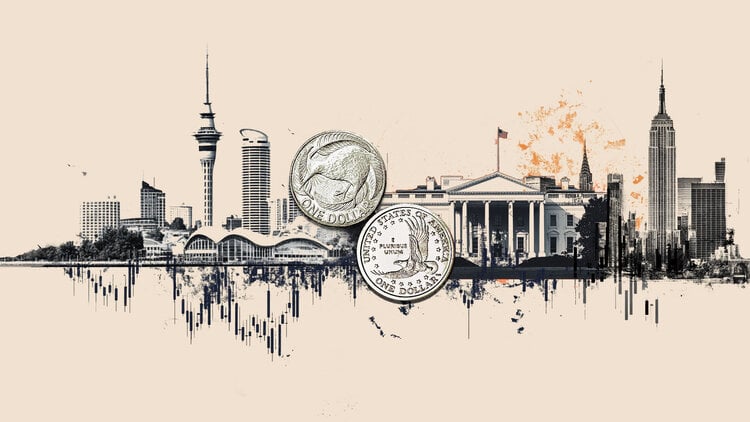Starting to invest is an exercise that raises doubts about where to allocate that hard-earned money saved. After all, there are countless products, with complex names and that promise varied percentage returns. But, to facilitate the beginning of new investors, the CNN Brasil Business consulted experts who pointed out the four most suitable investments for beginners and compile tips so that there is no confusion when choosing.
According to analysts, those starting to invest should opt for fixed-income assets, that is, those that have a defined return at the time of contracting, mainly such as Tesouro Direto, CDBs (Bank Deposit Certificate) and LCIs/LCAs (Letras de Real Estate Credit/Agribusiness).
According to Virginia Prestes, professor of finance at FAAP, before deciding on which product to direct the money, it is necessary to understand the need to form an emergency reserve, resources intended to cover three to six months of fixed expenses in case of unforeseen events.
“The first investment has to be, necessarily, for the formation of the emergency reserve, which is that investment with low risk and immediate liquidity. From the emergency reserve, the investor can start to diversify. He will choose whether he wants to give up liquidity, and hire assets with a slightly longer term”, he said.
The initial diversification of an investment portfolio must be in fixed income, with returns close to the basic interest rate (Selic), currently at 7.75%, and can count on the security of Tesouro Direto, plus the returns of CDBs and LCIs and LCAs, and even the composition of a DI Fund.
Direct Treasure
Treasury Direct bonds offered by the National Treasury, in which the investor lends money to the government and can receive this amount back, after some time, adjusted for interest.
Altogether, there are five types of titles, each with its own characteristics. Among them, the most recommended for those starting out is the so-called Treasury Selic, which closely follows the Selic rate variation and has little volatility, that is, its price undergoes few corrections over time.
The only point of attention is that investors need to be aware that Treasury Direct bonds are marked to market, that is, their value is affected if the investor decides to sell them before the investment expires.
CDB
The certificate is nothing more than a bond issued by banks and yields a percentage of the CDI, which is close to the Selic, and may be equal to, less than or greater than 100%. For example: the CDB can yield 90% of the CDI, 100% of the CDI, 130% of the CDI, and so on.
But there are also fixed-rate CDBs (which have a pre-defined correction rate) and hybrids (they have a fixed correction rate plus some variable index, such as the IPCA, which measures inflation).
The CDB may or may not have daily liquidity (when amounts can be withdrawn at any time). The longer the maturity of the CDB, that is, the longer the time for which the money is invested, the better it pays.
LCI/LCA
Letters of credit work in the same way as a CDB, with a single difference for the investor. Unlike Treasury Direct or CBD, which have income tax (IR) regressive from 22.5% to 15%, plus Tax on Financial Operations (IOF) for less than 30 days, LCI and LCA do not have taxation.
This makes the product more attractive than the others, as it will deliver a net income to the investor, without the need for tax collection.
DI FUNDS
The funds are like investment condominiums in which residents, in this case shareholders, invest resources individually and the amount is applied according to a strategy. The function of the Referenced DI Fixed Income Funds, or simply DI Funds, is to guarantee the shareholder a return of 100% of the CDI. For this, the fund manager will choose which securities to invest in.
The modality also has daily liquidity, but like any investment fund, it is important that the investor observe the amount of administration fees and other fees that may be charged by the Treasury and by B3, and it is also not protected by the Credit Guarantee Fund (FGC) as the other products mentioned.
Beware of promises (and study)
According to Virginia Prestes, before choosing any of these products, however, the beginning investor needs to do their homework and understand about the applications, the risks and the possibilities of return.
“My tip is that people choose a product they understand, always combining financial education with the sophistication of the investment world. A common mistake is that novice investors choose products based on past performance.. So she can choose something super volatile and illiquid just because it sold more,” he said.
“For example, cryptocurrencies have attracted people who have never invested, as they have grown significantly in recent years. So people neglect the volatility and the risk involved a lot and just go after profitability, even if they don’t know what cryptocurrencies are,” he added.
Furthermore, for the financial planner Raphael Carneiro, scams are still very common in Brazil. Therefore, anyone interested in starting to invest needs to flee from promises of extraordinary returns.
“They need to beware of false promises, with those who promise exorbitant gains. There is no such thing. Nobody is going to become a millionaire overnight,” he said.
BDR, ETF, Blue Chip: do you know what the market jargon means?
What does Circuit Breaker Mean?
What does BDR mean?
What is ETF?
Which is CDB?
What is Blue Chip?
What is Day Trade?
What is CDI?
What is CVM?
You still don’t know everything about the investment world (but read our articles, this will help you)
It took you very little to be a natural investor!
Barsi take care — looks like we’ve got a big investor around here!
Reference: CNN Brasil
I am Sophia william, author of World Stock Market. I have a degree in journalism from the University of Missouri and I have worked as a reporter for several news websites. I have a passion for writing and informing people about the latest news and events happening in the world. I strive to be accurate and unbiased in my reporting, and I hope to provide readers with valuable information that they can use to make informed decisions.







